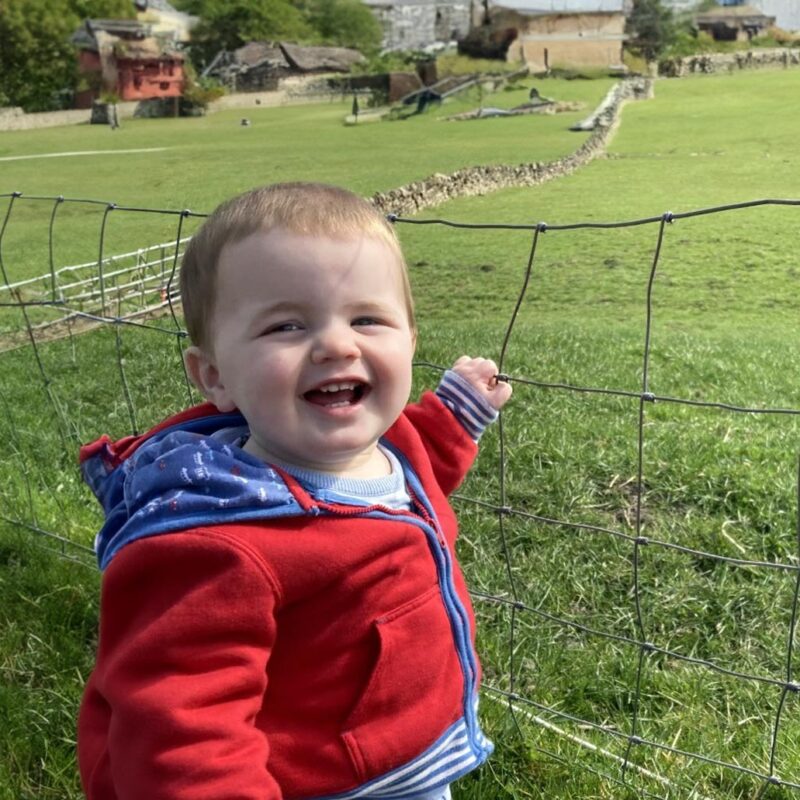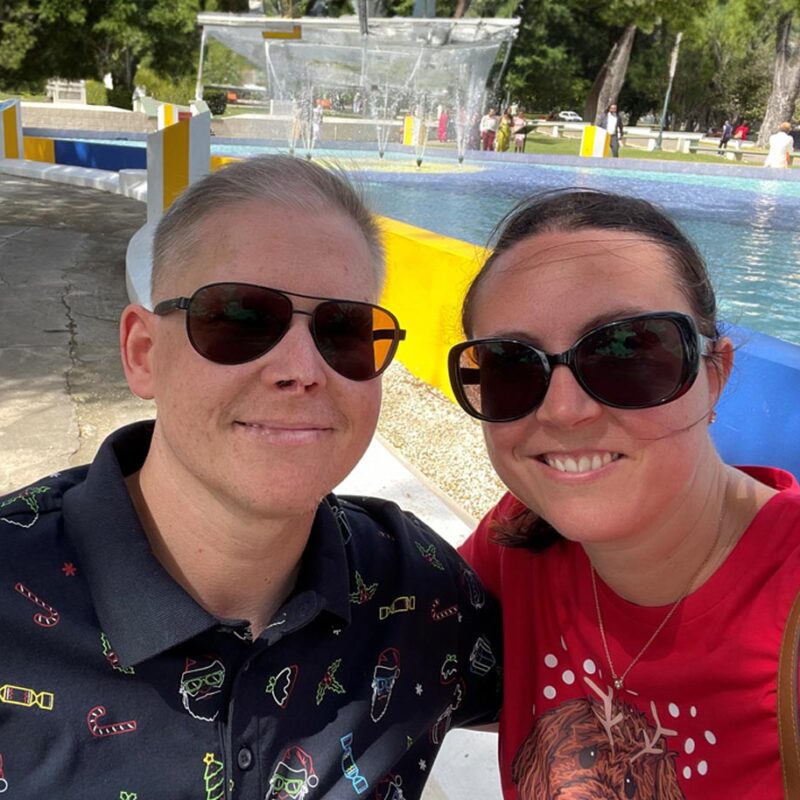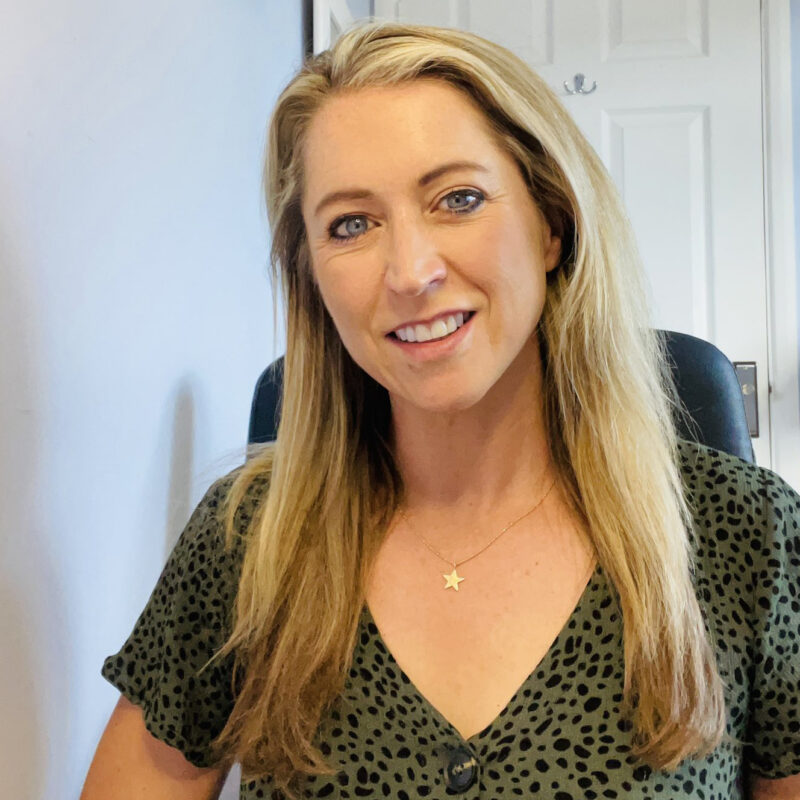Hollie was just 18 when a seemingly routine urinary tract infection (UTI) during the height of the COVID-19 pandemic turned into a life-threatening case of sepsis. Despite being fit, healthy and preparing to start university, Hollie’s world changed overnight. Sepsis left her partially paralysed and in a wheelchair, but her determination to adapt, advocate and live fully has been nothing short of extraordinary.
By sharing her story, she hopes to raise awareness of how serious sepsis can be – even in young, healthy people – and highlight the urgent need for better care and support for young disabled adults.
“In the middle of 2020 – so, July – I contracted a UTI,” Hollie said. “I’d had chronic UTIs and kidney infections beforehand, so I thought, just another one of these. It’ll be okay.” She contacted her GP and sent in a urine sample. But shortly after, she was told to go to hospital. “Everything was absolutely haywire. I had a heart rate of 160-something. My blood pressure was in the 80s. My temperature was 39.6. I literally got up to get on the bed and collapsed.”
What Hollie didn’t realise at the time was that she was septic. She was admitted to hospital and placed on IV antibiotics. “I was in for about two weeks,” she recalled. “The day I was due to go home, I had this really weird feeling in my jaw. One part of my mouth was going one way and the other was going the other way.” When her dad came to collect her, she had a seizure – her first. What followed was six more months in hospital and a cardiac arrest that nearly took her life.
After returning home just after her 19th birthday, Hollie’s ordeal wasn’t over. She said: “Within six weeks, I was back in ITU with septic shock for three weeks, and then had another two-month hospital stay as well. So yeah… it’s been very difficult, to say the least.”
The sepsis affected Hollie’s kidneys, lungs and brain. “Due to the seizures and the cardiac arrest, I became partially paralysed. I’m in a full-time wheelchair,” she said. “Sepsis has very well and truly impacted my life in a way I never thought anything could. I was happy, healthy, playing a lot of sports, getting ready for uni and driving – and all of that has sort of disappeared at the moment.”
- Hollie loved sports prior to her sepsis experience
- Hollie before sepsis
- Hollie is now a wheelchair user after having sepsis
The experience of becoming disabled overnight was traumatic. “I woke up one day after a major seizure, cardiac arrest, and I was no longer able to move my right side. My head was practically on my shoulder. My arm, my leg was paralysed. I couldn’t sit up very well,” Hollie said. “All my basic autonomy… I realised my life before was gone.”
“Sepsis can also affect other parts of the body, causing issues down the line, including recurrent infections,” Hollie added.
Learning to adapt to her new life took time. “Even just finding the right wheelchair for you. I thought once you’re given a chair, that’s your chair. I think I’m on chair number six or seven in these five years.”
Despite being in a wheelchair, Hollie continues to push for independence and the quality of life she deserves. She’s been through supported living, a care home, and now lives in her own adapted flat with daily carers. “I’ve got a place to call my own, and I had that at nearly 21 – which I’m not sure a lot of people my age could say,” she said.
But the journey hasn’t been easy. “You have to fight to recover from sepsis, and people think, ‘Oh, you’re disabled, you’re going to get this, this and this.’ You have to fight. If something doesn’t fit you properly and the health professionals say, ‘That should do,’ you say, ‘No. This is my body. This is my life now.’”
As a young disabled adult, Hollie also struggles to find services tailored to her needs. “Everything pretty much is catered more to the elderly, or more to those with learning difficulties,” she said. “I’m hoping to work towards getting better care for not just young people who have fought sepsis, but young adults with disabilities on the whole.”
Hollie received little mental health support in hospital. “I was put on some antidepressants, but I’ve not had any therapy for it. We’re now building up to that – nearly five years down the line,” she said. She wasn’t aware that the UK Sepsis Trust offered mental health support, and much of her recovery has felt like “a go-it-alone sort of thing”.
She credits her strength and resilience to survival instinct: “I’ve become very accustomed to being able to paint a face on now and just sort of get on with things. Which isn’t the healthiest way, but it’s just my way of coping at the moment.”
Hollie’s journey has also been hard on her family. Her parents work in healthcare, which helped when navigating appointments and care packages, but emotionally, they’ve carried their own trauma. Hollie said: “I remember my mum and dad saying to me, each time you go into an ambulance, we don’t know whether we’re going to see you alive again.”
She acknowledged the different points of view that exist between her and her family – with her Mum and Dad constantly on edge about receiving phone calls, and finding it hard to watch Hollie going through things such as comas or seizures. They have found that their mental health has also been affected.
Now 23, Hollie is channelling her energy into advocacy. “I think everyone needs to be more aware… not every sign and symptom of sepsis, but things like the Sepsis Six,” she said. “It’s not just a bad infection. It shuts down your organs.”
Despite her own hesitations about seeking hospital care again, Hollie is proactive in helping others: “If a friend or family member says, ‘Oh, I’ve got an infection,’ I’m like, ‘Right – so if this happens or this happens, you go to the doctors.’ If it turns out not to be sepsis, that’s perfect. But if it is, you’ve caught it early.”
Hollie is passionate about wheelchair accessibility, after getting stuck in an aisle in Asda. She also wants people to challenge assumptions about wheelchair users: “There’s a lot that can be done in wheelchairs that people don’t realise. Wheelchair sports is a perfect example – I’m trying to get into that at the moment. It’s insane what people can do while being in a wheelchair.”
Hollie is now focusing on wheelchair tennis and hopes to get involved in local awareness work in Wales. “Being in a wheelchair gives you a different perspective – literally and metaphorically – on life,” she said. “I might not be where I planned to be, but I’m still here. And I still have plans.”








